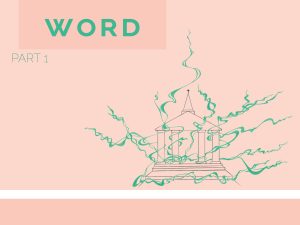
Malachi 3:13-18
What are you afraid of? Ultimately, fear is a matter of perspective. Fear can hinder us from being all that God calls us to be. Fear of the unknown is a lack of faith, a lack of belief that God is able to provide or care for His children.
Jesus is the Prince of Peace, and he would constantly teach his followers to not be afraid.
In Luke’s gospel, when the angel Gabriel visited Mary to pronounce the birth of Jesus, he said, “do not be afraid Mary, for you have found favor with God”.
But as we read the Bible, we see many references to the fear of the Lord. Should we be afraid of God or not?
True believers should never be afraid of God, but we should always have a reverence and respect for the all-holy, all-powerful God who spoke the universe into existence.
The fear of the Lord is healthy reverence, but the children of God should never live in a cowering fear of God. He is our loving heavenly Father.
Unhealthy fear in our relationship with our heavenly Father leads to legalism. But a healthy fear leads to a heart response to the will of God (See Proverbs 16:6).
During the time of Malachi, the people didn’t have a healthy fear of God, they were operating out of legalism and as we read in chapter 1, they even despised God.
Malachi 3:13 to 18 can be divided into two groups of people; in verses 13-15, God addresses those who are far from Him, going through the motions of being followers of God, but actually they are not serving Him at all. They have a form of religion without a relationship.
These people were living in legalism and simply following a set of rules, but they were tired of going through the motions (See Malachi 3:14). Essentially the people were asking the question “why are we doing this?” At the same time they were also asking, “what’s in it for me?”.
People who serve God out of legalism are serving with the intention of getting something from God. The have a mentality of reciprocity, a “what’s in it for me” attitude.
Before we criticize this group of people, we must come to terms with the fact that we all have a form of this reasoning in us.
Some may say that we are not under the law, that was before Jesus died for our sins on the cross and paid our debt once and for all. In response to this argument, we have two ways of thinking in our churches today, License and legalism.
License says, we have been saved by grace through Jesus Christ and therefore we can live as we please. God promises us forgiveness and we claim the promise of 1 John 1:9, and live however we want. However, the Apostle Paul addresses this in Romans 6:1-2.
As followers of Jesus, we will never be perfect this side of heaven, but we also know that there is joy and blessing in doing what God instructs us to do. Walking in holiness and purity leads to peace and blessing.
Legalism is the opposite way of thinking. People build fences, a man-made set of rules in order to prevent even the temptation to sin.
The real answer is found in neither license nor legalism. We must not make the mistake of thinking that guarding ourselves and our children from sin is wrong, but it does become a problem when we miss the real reason for the rules and the law. Ultimately it is a heart issue, it all boils down to a healthy relationship with our heavenly Father.
Legalism says, you must give to the church, you must read your bible and pray every day. legalism says, you must go to church and you must give to the poor.
But relationship changes our worldview. Relationship leads us to want to give, and we get to read our Bibles allowing the word of GOD to speak to us. We get to go to church, to fellowship with other believers. We have the joy of blessing others because of what God has blessed us with.
But then in verse 16, God speaks to another group, this group of people differs from the first primarily in their attitude towards God.
“Then those who feared the LORD spoke with one another. The LORD paid attention and heard them, and a book of remembrance was written before him of those who feared the LORD and esteemed his name.” (Malachi 3:16)
This group of people had a healthy fear and respect for God (Proverbs 3:7).
When we have a healthy fear of the Lord, we have a respect and a reverence for the almighty God that will keep us from doing anything that is contrary to His perfect will.
Verse 16 also gives a promise that God notices them and listens to them. God knows your heart and He listens to those who come to Him with the right posture, with humility and reverence.
The verse continues and says that a book of remembrance was written before Him of those who feared the Lord and esteemed Him name. The Bible clearly teaches us that God records everything. Every decision we make in life is recorded, both good and bad. If we really understood this, it would change the way we view the simple decisions we make every day.
As we come to verse 17, we see an amazing promise, “They shall be mine, says the LORD of hosts, in the day when I make up my treasured possession, and I will spare them as a man spares his son who serves him.”
God looks at His people as His treasured possession. The Hebrew word used here is one to describe a collection of jewels. We are viewed by God as his treasured possession (See 1 Peter 2:9).
God goes on to say that “because you are my treasured jewel, I will keep you, I will save you from the coming judgement.” This is not because of what we have done, but all because God is true to His promises, and it is God’s nature to be faithful.
The chapter ends with a summary statement of these two groups. The righteous who serve God out of relationship, and the wicked who do not. Do you know who you are?
Do you know that you are God’s treasured possession, bought with the precious blood of Jesus? Read and Meditate on Psalm 34:8-9.


 Psalm 119 v9-16
Psalm 119 v9-16